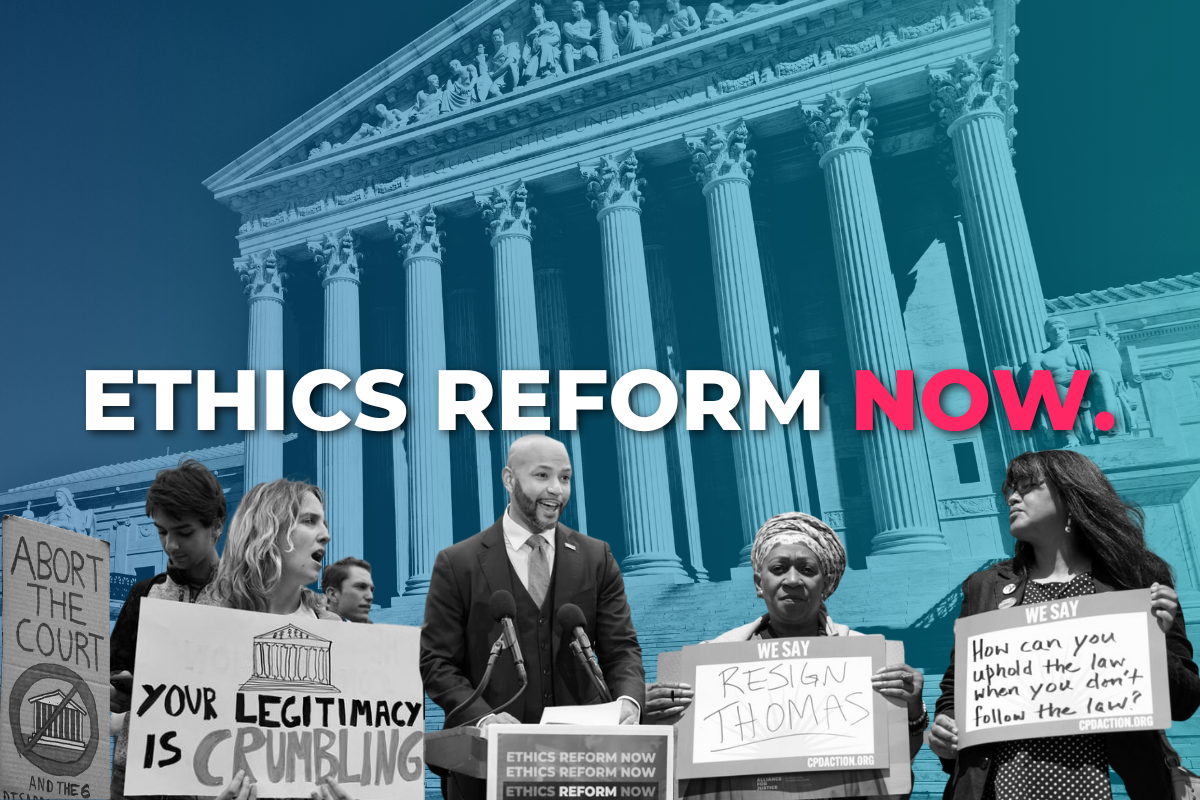Raising the Bar: Nonprofits and the Fight for Judicial Integrity

No one is above the law, especially those charged with interpreting it. In recent weeks, we’ve learned about the luxury trips, lavish gifts, and private school tuition given to Justice Clarence Thomas from billionaire Harlan Crow. Now, we have discovered that Justice Gorsuch engaged in an undisclosed real estate transaction just nine days after his confirmation with the head of a law firm with business in front of the court.When it comes to upholding justice in our society, accountability is paramount. Yet, despite being the highest court in the land, the U.S. Supreme Court is not being held to the highest ethical standard it should be. Shockingly, it does not even abide by the same code of ethics it imposes on the lower courts. As a result, the integrity and independence of our judicial system is at dire risk. Nonprofits must take a stand and demand that those responsible for interpreting and enforcing the law adhere to a strict standard of conduct and ethics, to ensure judicial independence and integrity. But how? What can public charities do to respond?
- Can they call for Justice Clarence Thomas to resign? YES.
- Can they call on Chief Justice John Roberts to implement rules that make it clear that lavish gifts, sweetheart real estate deals, and economic windfalls will not be tolerated? YES.
- Can they call on Congress to enact legislation imposing a code of ethics on the Supreme Court? YES.
- Can they call for the impeachment of Justice Thomas by Congress? YES.
- Can they call on the Department of Justice to investigate? YES.
There are a wide variety of tools and actions that a nonprofit can use to ensure that Supreme Court justices render judicial decisions that are free from the influence of wealthy political donors. Alliance for Justice is using its voice to call on Justice Thomas to resign. Your organization can join in this advocacy as well.
Activities Directed at the U.S. Supreme Court
501(c)(3) public charities can engage the Court and advocate for change without it being considered lobbying. Because the Court does not legislate, activities aimed at SCOTUS itself do not qualify as lobbying. Nonprofits can have an enormous impact, because there are no limits on how much judicial branch activity a public charity can engage in. Here are some impactful ways nonprofits can conduct advocacy programs aimed at the U.S. Supreme Court that will not qualify as lobbying, and therefore, do not need to be counted against a public charity’s lobbying limits.
- Call for the resignation of Justice Clarence Thomas.
- Call for the Court to investigate and hold Justices accountable for the non-disclosure of gifts.
- Call on Chief Justice Roberts to implement ethics rules for Justices and their families.
- Join other nonprofit organizations to coordinate judicial branch activities. Voices joining together increases impact.
Activities Directed at Congress
Advocacy through direct or grassroots lobbying is another way that nonprofits can make a change. 501(c)3 public charities can lobby as long as they do so within specified limits. A nonprofit can aim its messages at Congress – whether it’s calling for the impeachment of Justice Thomas or working to ensure the passage of a binding Code of Ethics for the U.S. Supreme Court.
Ethics reform bills have been introduced in both the U.S. House and U.S. Senate. Nonprofits can directly lobby legislators or call on the public to contact their Representative or Senator and encourage them to act. Lobbying consists of activity intended to influence the passage or defeat of legislation. Direct lobbying is communicating directly with a legislator (i.e. a member of Congress) and expressing a view about specific legislation. Grassroots lobbying consists of communication with the general-public that expresses a view on specific legislation and contains a call to action.
The amount of lobbying any nonprofit can do depends on its tax status and, for 501(c)3 public charities, whether it has chosen the 501(h) election or uses the default insubstantial test to measure its lobbying limits. Under either test, 501(c)3 public charities are limited in the amount of lobbying they can conduct. Organizations can refer to Bolder Advocacy’s “Being A Player: A Guide to the IRS Lobbying Regulations for Advocacy Charities” for more information on public charity lobbying limits and definitions.
There are several possibilities and opportunities for a nonprofit to advocate at the legislative level. For example, organizations can encourage ethics reform, call for the impeachment of Justice Thomas, and (if successful on the latter) advocate for the nomination and confirmation of any future Justice.
Here are some examples of lobbying activities that a nonprofit can undertake:
- Directly communicate with Members of Congress to tell them to legislate ethics reform.
- Call on supporters to communicate with their Representatives to pass ethics reform legislation and provide a mechanism for that communication.
- Call on Members of Congress to impeach Justice Thomas.
- Encourage the nomination and confirmation of future Supreme Court justices.
Key Takeaway: Nonprofits Can Demand Accountability and Hold the Supreme Court to Higher Standards.
Nonprofit public charities have a vital role to play in advocating for ethics reform and calling on Justice Thomas to resign, and as you can see, there are many tools available to ensure that ethical standards are implemented, and the integrity of our justice system is upheld. By raising our voices and demanding high ethical standards from the highest court in the land, we can make a real impact on the future of our legal system. Let’s come together and speak out for what is right, creating a legal system that serves everyone fairly and equally, without bias or prejudice (or having to take a Supreme Court Justice on your next vacation).